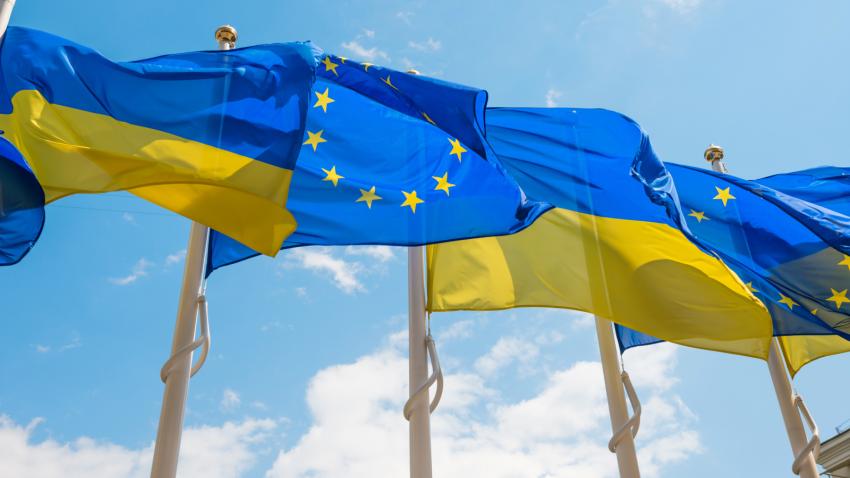EU offers Ukrainian refugees another year of protection, but eyes phase-out

The extension will provide “legal certainty for EU member states, reassurance for Ukrainians, and avoid burdening national asylum systems,” Commissioner for Internal Affairs and Migration Magnus Brunner said.
The Commission has proposed extending the temporary protection for Ukrainian refugees to March 2027 while preparing for the phase-out of the emergency scheme.
Triggered in March 2022, the Temporary Protection Directive (TPD) was designed as a short-term, collective response to Russia’s invasion of Ukraine.
Initially believed to allow only two extensions, capping protection to March 2025, the Commission later pushed that to 2026 with a broader interpretation. On Wednesday, it extended the scheme once more until March 2027, citing Ukraine’s “volatile” situation.
The extension will provide “legal certainty for EU member states, reassurance for Ukrainians, and avoid burdening national asylum systems,” Commissioner for Internal Affairs and Migration Magnus Brunner said at a press conference alongside Ukrainian Deputy Prime Minister Oleksiy Chernyshov.
At the same time, the Commission is urging member states to prepare transition pathways for Ukrainian refugees. “There is always the possibility to end temporary protection before March 2027,” Brunner noted, depending on developments on the ground.
That is why the EU recommends granting Ukrainians to obtain more permanent legal statuses, such as national or EU residence permits for work, study, or long-term stay.
The Commission is also suggesting letting refugees take short “go-and-see” trips to Ukraine to assess whether returning is a viable option.
The idea, also considered for Syrian refugees, would go hand-in-hand with voluntary return programmes, set up in close coordination with Ukrainian authorities, to organise returns and clarify exemptions, such as medical cases or children’s needs.
As of March 2025, 4.26 million Ukrainians were still under EU temporary protection. Ukrainian refugees' desire to return home has remained steady, studies have shown, which is uncommon in prolonged displacement crises.
Ursula von der Leyen also recently announced an extra €3 billion in EU funding for the implementation of the Pact on Migration from 2025 to 2027, including support for EU countries hosting Ukrainians under temporary protection.
To assist both integration and returns, the Commission will also establish so-called 'unity hubs' across the bloc, envisioned as information and support centres for displaced Ukrainians.
The concept was first proposed by Chernyshov, and similar initiatives have already been implemented in Germany and Spain, and are progressing in seven member states, a Commission official told.
A special envoy for Ukrainians in the EU is also in the pipeline, tasked with coordinating with member states and other international organisations, such as the International Organisation for Migration and the United Nations High Commissioner for Refugees (UNHCR).
The name of the envoy was not announced on Wednesday, but the appointment is expected to be voted on at the next College meeting.